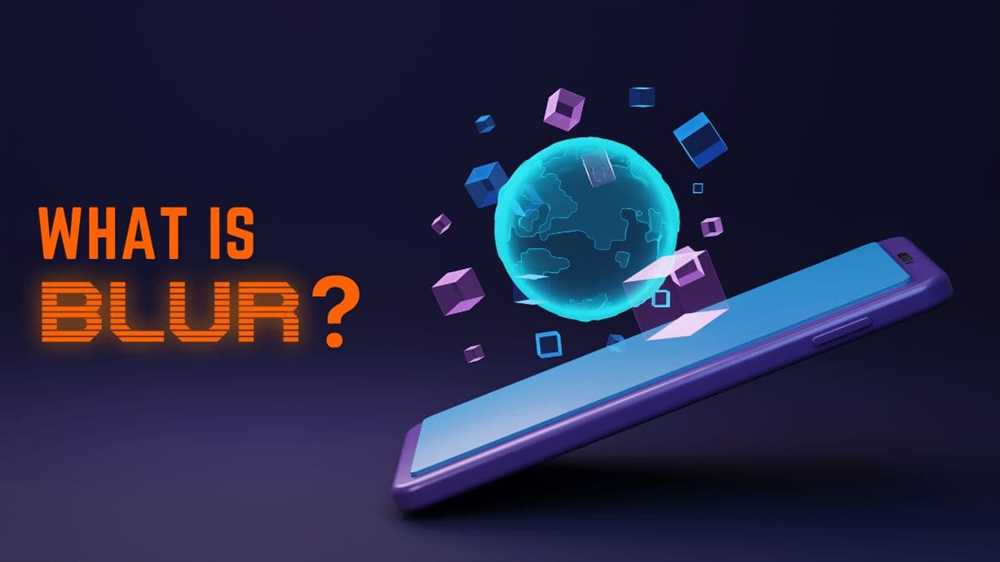
The world of cryptocurrency is constantly evolving, and Blur Crypto is at the forefront of this exciting revolution. With its innovative technologies and forward-thinking approach, Blur Crypto is set to shape the future of digital currencies.
One of the key trends to watch in the future of Blur Crypto is the rise of decentralized finance, or DeFi. This revolutionary concept aims to eliminate intermediaries and provide individuals with direct control over their finances. Blur Crypto’s decentralized platform allows users to access a range of financial services, including lending, borrowing, and investing, all without the need for traditional banks or financial institutions.
In addition to DeFi, another trend to watch is the integration of blockchain technology into various industries. As Blur Crypto continues to expand its reach, we can expect to see the integration of digital currencies into sectors such as real estate, gaming, and supply chain management. By utilizing blockchain technology, Blur Crypto offers enhanced security, transparency, and efficiency, providing a seamless experience for users across different industries.
Furthermore, Blur Crypto is also focusing on improving scalability and transaction speed. As the demand for digital currencies continues to grow, scalability issues can arise. However, Blur Crypto is exploring innovative solutions to ensure that its platform can handle a high volume of transactions, without compromising on speed or security.
Overall, the future of Blur Crypto looks promising, with exciting innovations and trends on the horizon. Whether it’s the rise of DeFi, the integration of blockchain technology, or improvements in scalability and transaction speed, Blur Crypto is at the forefront of driving the evolution of digital currencies.
Advancements in Blockchain Technology

In the rapidly evolving field of blockchain technology, there have been significant advancements in recent years that are shaping the future of various industries. Blockchain, originally created as the underlying technology behind cryptocurrencies, has evolved to become a powerful tool with multiple applications beyond just financial transactions.
One of the key advancements in blockchain technology is the emergence of smart contracts. These self-executing contracts with the terms of the agreement directly written into the code allow for automatic execution of transactions once predefined conditions are met. Smart contracts have the potential to revolutionize industries such as real estate, supply chain management, and healthcare, eliminating the need for intermediaries and streamlining processes.
Another significant advancement is the development of private blockchains. While public blockchains, like Bitcoin and Ethereum, are accessible to anyone and have an inherent level of transparency, private blockchains offer a more controlled and secure environment. Private blockchains are particularly appealing to businesses and organizations that require enhanced privacy and control over their data while still leveraging the benefits of blockchain technology.
The integration of blockchain with other technologies

In addition to these advancements, blockchain has also been integrated with other cutting-edge technologies to further enhance its capabilities. One notable example is the combination of blockchain with the Internet of Things (IoT). By leveraging blockchain’s decentralized and trustless nature, IoT devices can securely communicate and transact with each other without the need for centralized intermediaries.
Blockchain has also been combined with artificial intelligence (AI) to create decentralized networks that can autonomously make decisions based on predefined rules. This integration has the potential to create self-regulating systems that are resilient, transparent, and incorruptible.
The future of blockchain

As blockchain technology continues to mature, its potential applications and advancements are expected to grow exponentially. Industries such as healthcare, energy, and government are already exploring the benefits of implementing blockchain solutions. The integration of blockchain with emerging technologies like AI and IoT will further expand its capabilities and create new opportunities.
However, there are still challenges that need to be addressed, including scalability, interoperability, and regulatory frameworks. As the technology evolves, these challenges are being actively tackled by developers, researchers, and policymakers in order to unlock the full potential of blockchain.
Overall, advancements in blockchain technology are paving the way for a decentralized and interconnected future. With its potential to enhance security, transparency, and efficiency, blockchain is set to transform numerous industries and redefine how we transact, communicate, and interact with each other.
The Rise of Decentralized Finance
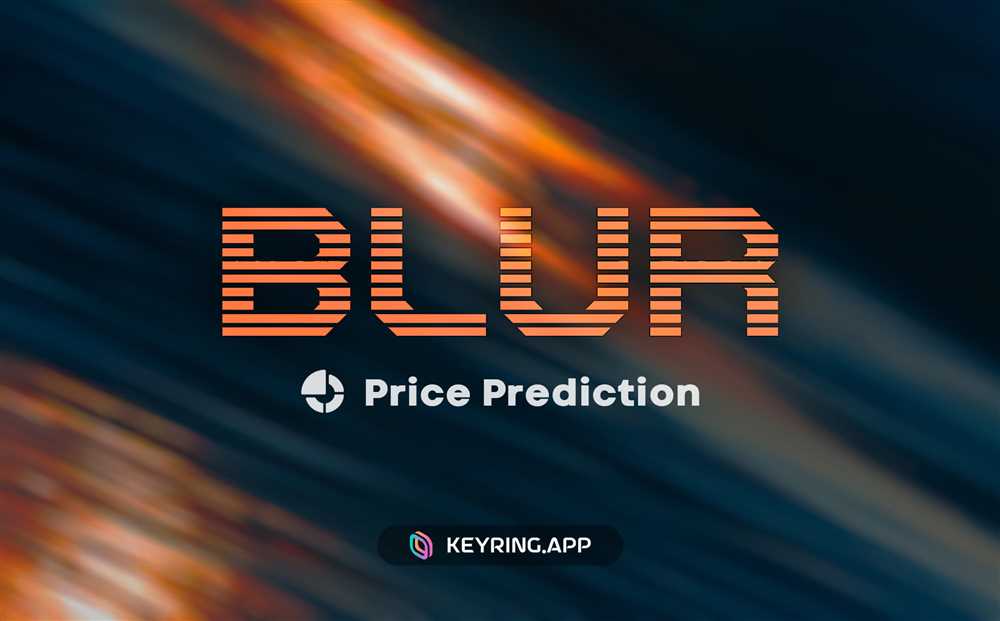
Decentralized Finance, or DeFi, has emerged as one of the most exciting and disruptive trends in the cryptocurrency industry. With its potential to revolutionize traditional financial systems and offer greater financial inclusivity, DeFi has gained significant traction in recent years.
DeFi refers to the use of blockchain technology and smart contracts to recreate and improve upon traditional financial services in a decentralized manner. Unlike centralized financial systems, which rely on intermediaries such as banks or brokers, DeFi operates on a peer-to-peer basis, allowing users to transact directly with each other.
The Benefits of DeFi
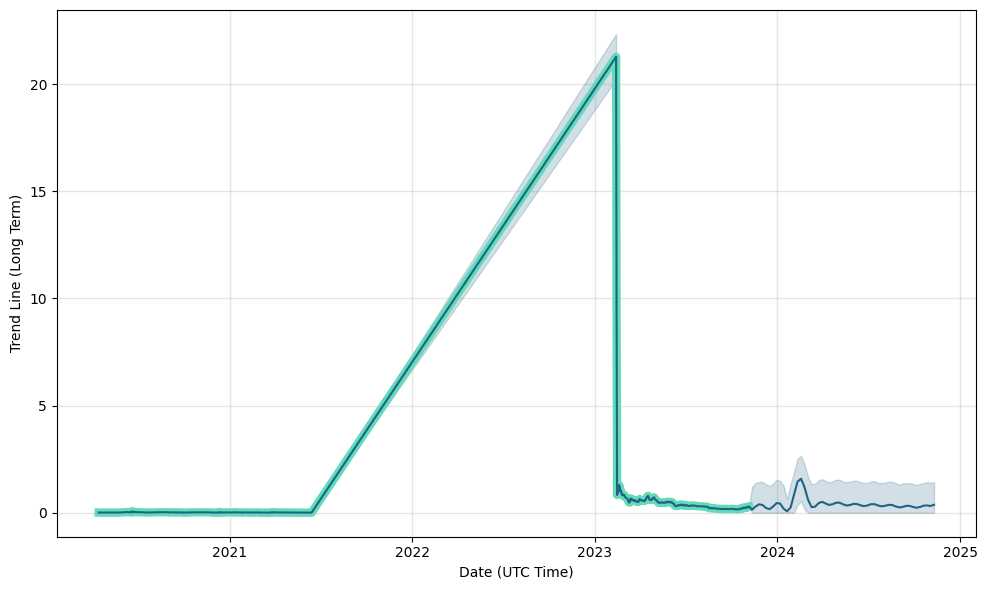
DeFi offers several key benefits that make it an attractive option for both individuals and businesses. Firstly, DeFi platforms enable greater financial inclusivity by removing barriers to entry. Users only need an internet connection and a compatible wallet to access a wide range of financial services, such as lending, borrowing, and trading.
Secondly, DeFi provides increased transparency and security. As all transactions are recorded on the blockchain, they are immutable and cannot be altered. This eliminates the risk of fraud or manipulation, which is prevalent in traditional financial systems. Additionally, users have full control over their funds, as they are stored in their own wallets rather than custodial accounts.
Key Innovations in DeFi

DeFi has introduced several groundbreaking innovations that have the potential to reshape the financial landscape. One such innovation is decentralized exchanges (DEXs), which enable direct peer-to-peer trading without the need for intermediaries. By eliminating centralized exchanges, DEXs offer increased security, privacy, and liquidity.
Another important innovation is decentralized lending and borrowing platforms. These platforms allow users to lend or borrow digital assets without the need for a traditional financial institution. By cutting out intermediaries, DeFi lending platforms offer more competitive interest rates and faster processing times.
Stablecoins, which are cryptocurrencies pegged to fiat currencies, also play a significant role in DeFi. These digital assets provide stability in an otherwise volatile market, making them suitable for everyday transactions and reducing the reliance on traditional fiat currencies.
The Future of DeFi
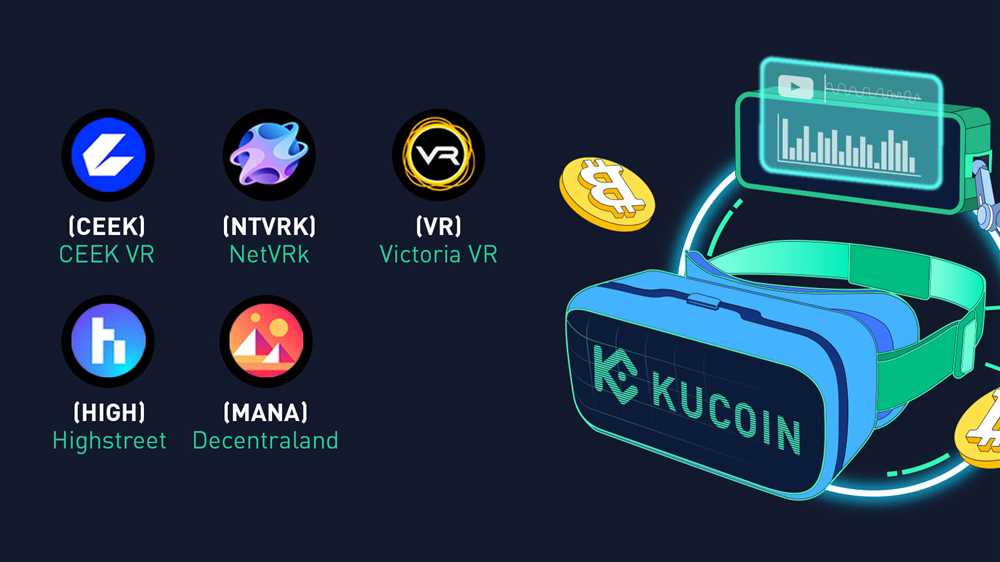
The future of DeFi looks promising, with new projects and innovations constantly emerging. As the technology matures, we can expect to see increased scalability, improved user experience, and a wider range of financial services being offered on DeFi platforms.
However, there are also challenges that need to be overcome for DeFi to reach its full potential. These include regulatory issues, scalability limitations, and the need for better security. As DeFi continues to grow, it will be imperative for the industry to address these challenges and build trust among users and regulators.
| Pros | Cons |
|---|---|
| Increased financial inclusivity | Regulatory challenges |
| Greater transparency and security | Scalability limitations |
| Innovative financial services | Security concerns |
Despite these challenges, the rise of DeFi signifies a shift towards a more decentralized and inclusive financial system. With its potential to empower individuals and disrupt traditional financial intermediaries, DeFi is likely to play a significant role in shaping the future of finance.
What is Blur Crypto?
Blur Crypto is a decentralized blockchain platform that focuses on privacy and security. It provides users with a private and anonymous way to transact and communicate online.
What are some innovations in Blur Crypto?
Blur Crypto is constantly innovating to improve privacy and security. One of the recent innovations is the implementation of zero-knowledge proofs, which allows users to verify transactions without revealing any sensitive information.
Why is privacy important in cryptocurrency?
Privacy is important in cryptocurrency because it helps protect the sensitive financial information of users. By keeping transactions private, individuals can avoid potential identity theft and targeted attacks.
What are the trends to watch in Blur Crypto?
One of the trends to watch in Blur Crypto is the increased adoption of decentralized finance (DeFi) applications. These applications allow users to earn interest, borrow, and lend their Blur Crypto assets while maintaining their privacy.
How does Blur Crypto ensure security?
Blur Crypto ensures security through the use of strong encryption and cryptography algorithms. Additionally, the decentralized nature of the blockchain network makes it highly resistant to hacking and cyber attacks.




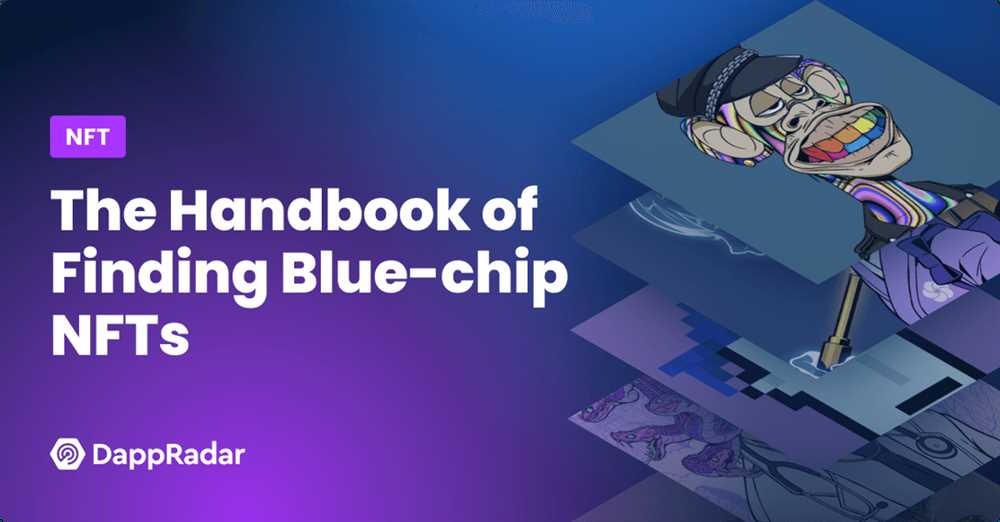
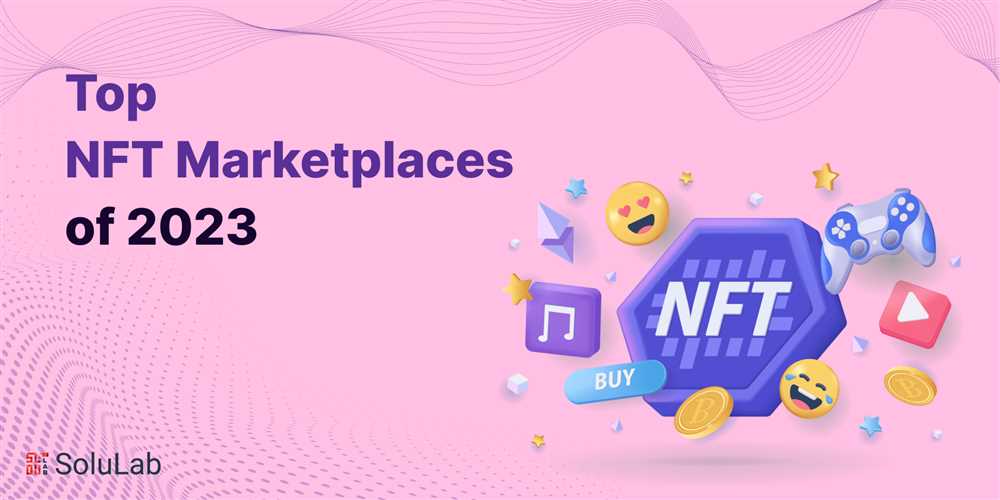
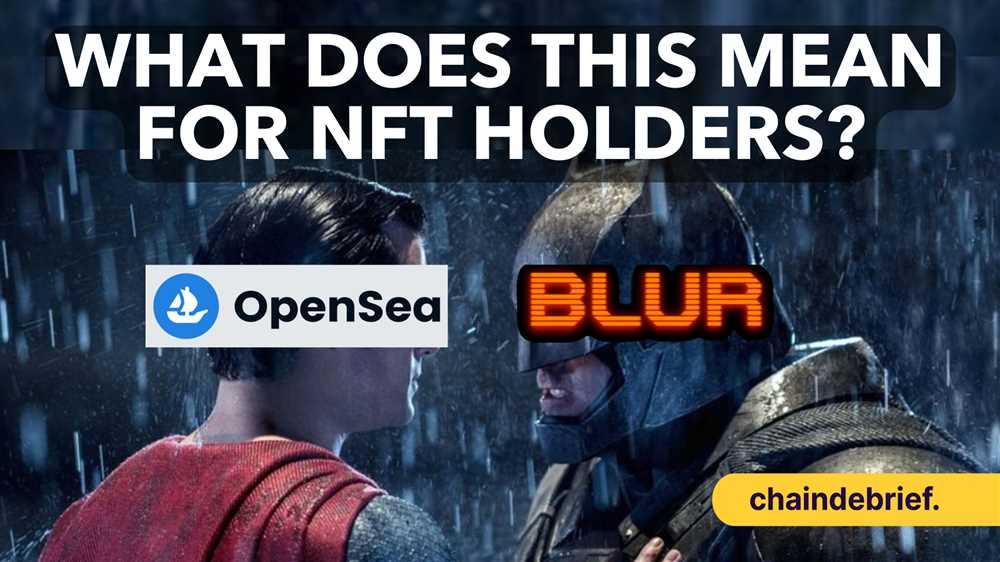
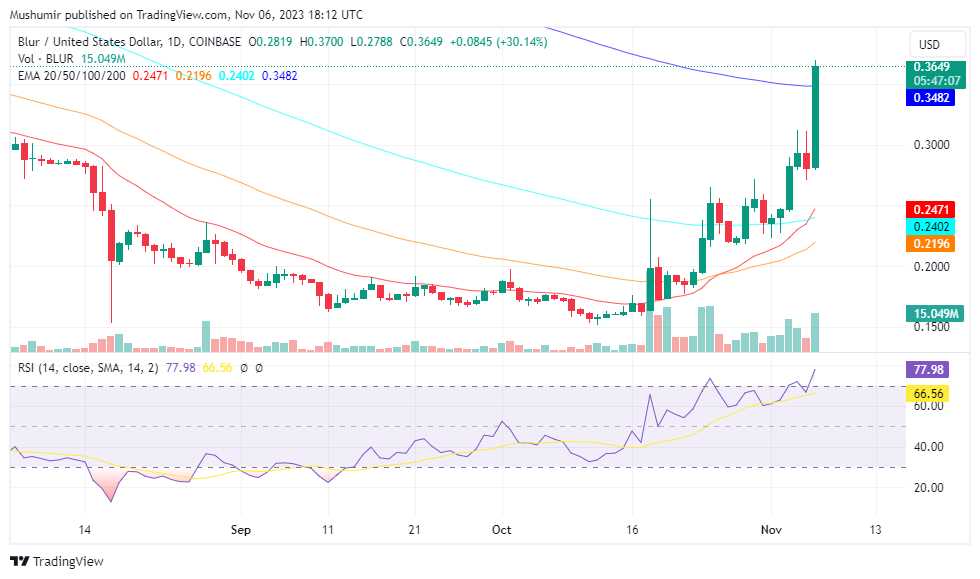
Leave a Reply